Look, here’s the brutal truth about business automation in 2025: You’re either automating your workflows with AI, or you’re watching your competitors eat your lunch while you’re still stuck doing everything manually. The companies crushing it right now aren’t the ones with the biggest budgets – they’re the ones smart enough to let artificial intelligence handle the grunt work while their teams focus on what actually moves the needle.
But here’s where most business owners screw up: They think AI automation is some mystical, expensive beast that only Fortune 500 companies can tame. Wrong. Dead wrong. The right AI automation partner can take your small business and make it operate like a well-oiled machine, processing leads, managing customer service, handling data entry, and running marketing campaigns while you sleep.
Companies Featured in This Article:
- PearlLemon AI
- Sapient
- Tallium
- Inverita Soft
- Enterprise Monkey
- Triare
- Geomotiv
- Unico Connect
- Snotor
- Glorium Tech
1. PearlLemon AI

When it comes to AI automation that actually delivers ROI instead of just pretty dashboards, we’ve built our reputation on one simple principle: results speak louder than buzzwords. While other agencies are still explaining what machine learning is, we’re already implementing neural networks that process your customer data, automate your sales funnels, and predict market trends with scary accuracy.
Our Core Services:
- Custom AI chatbot development and deployment
- Automated lead scoring and customer segmentation
- Predictive analytics for sales forecasting
- Natural language processing for customer support
- Computer vision solutions for quality control
- Robotic process automation (RPA) integration
- Machine learning model training and optimization
What sets us apart is our obsession with practical implementation. We don’t just build AI systems – we build AI systems that integrate seamlessly with your existing tech stack, whether you’re running on Salesforce, HubSpot, or some frankenstein combination of tools you’ve cobbled together over the years. Our clients typically see a 3.2x return on their AI automation investment within the first 180 days.
2. Sapient
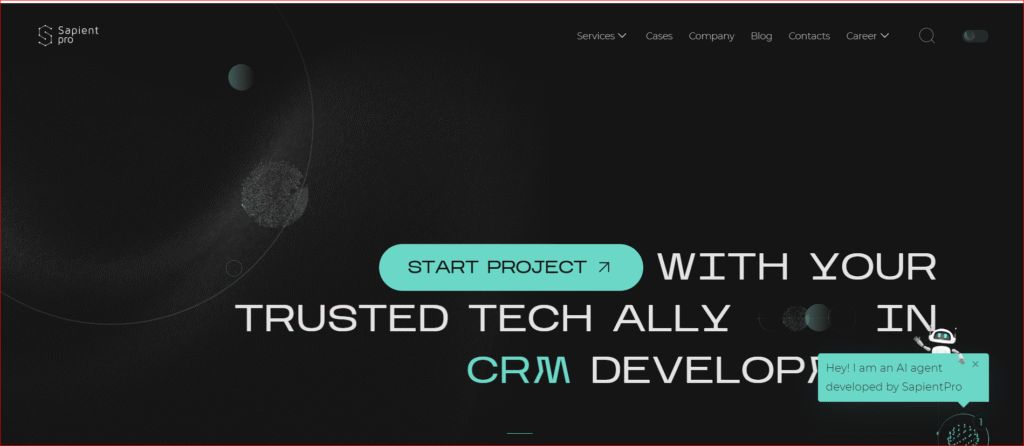
Sapient has carved out a serious niche in enterprise-level AI automation, particularly for companies dealing with massive data volumes and complex workflow orchestration. Their platform excels at handling multi-department automation scenarios where traditional RPA tools fall flat on their face.
What makes Sapient stand out is their expertise in cognitive automation – the kind of AI that doesn’t just follow pre-programmed rules but actually learns from your business processes and adapts accordingly. Their client roster includes major players in financial services, healthcare, and manufacturing – industries where getting automation wrong isn’t just inconvenient, it’s potentially catastrophic.
3. Tallium
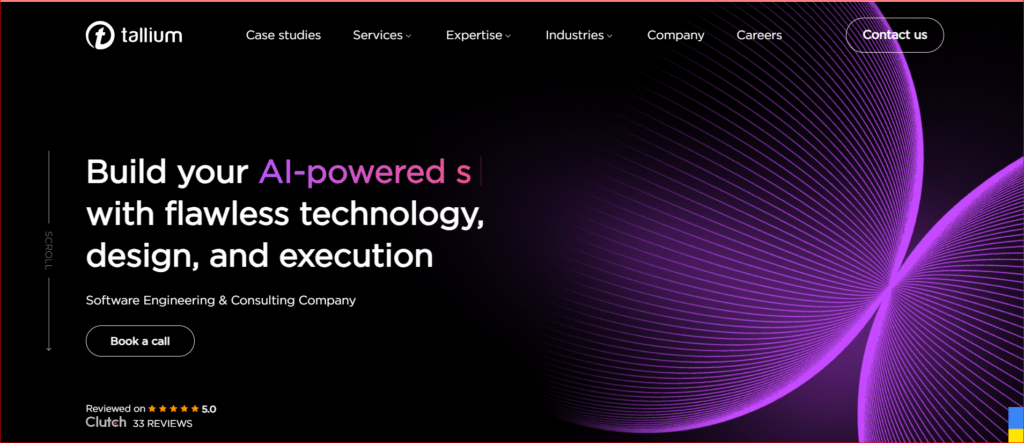
Tallium specializes in vertical-specific AI automation solutions, with particularly strong offerings in retail, e-commerce, and digital marketing. Their platform integrates with major e-commerce platforms like Shopify, WooCommerce, and Magento to automate everything from inventory management to customer lifecycle marketing.
Their secret sauce lies in their deep understanding of customer journey automation. Tallium’s AI can track user behavior across multiple touchpoints, predict purchase intent, and trigger personalized marketing sequences that feel human despite being completely automated. Their clients regularly report conversion rate improvements of 40-60% within the first quarter of implementation.
4. Inverita Soft

Inverita Soft has built their reputation on custom AI development for businesses with unique automation requirements that off-the-shelf solutions can’t handle. Their team includes PhD-level data scientists and software engineers who specialize in building AI systems from the ground up.
Their approach is particularly valuable for companies in specialized industries like biotech, aerospace, or advanced manufacturing where generic automation tools simply don’t cut it. What sets them apart is their expertise in hybrid AI systems that combine multiple approaches – machine learning, rule-based logic, and human-in-the-loop processes – to create automation solutions that are both powerful and reliable.
5. Enterprise Monkey

Enterprise Monkey focuses on mid-market businesses that need enterprise-grade automation without the complexity and cost typically associated with large-scale AI implementations. Their platform-based approach allows them to deliver sophisticated automation solutions quickly and cost-effectively.
Their strength lies in their pre-built automation modules for common business functions like accounts payable, customer onboarding, and inventory management. Enterprise Monkey’s team understands the unique challenges facing mid-market companies: limited IT resources, tight budgets, and the need for solutions that work out of the box with most clients seeing measurable results within 30-60 days of implementation.
6. Triare
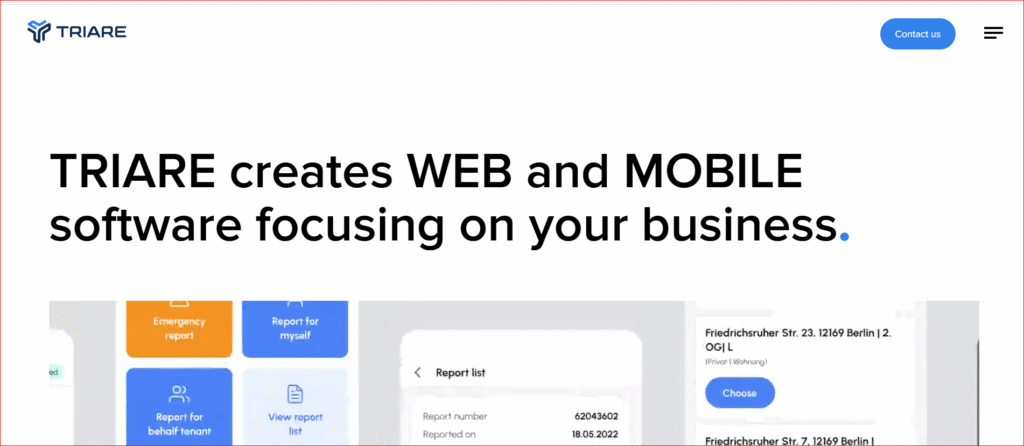
Triare has positioned itself as the go-to choice for businesses that need AI automation solutions with strong mobile and cloud-native capabilities. Their platform is built from the ground up for modern, distributed work environments where teams access systems from multiple devices and locations.
Their expertise in progressive web applications and mobile-first design means their automation interfaces work seamlessly across desktop, tablet, and smartphone platforms. The company’s approach to user experience design sets them apart in an industry often focused purely on technical capabilities, creating interfaces that feel intuitive and responsive rather than intimidating or clunky.
7. Geomotiv
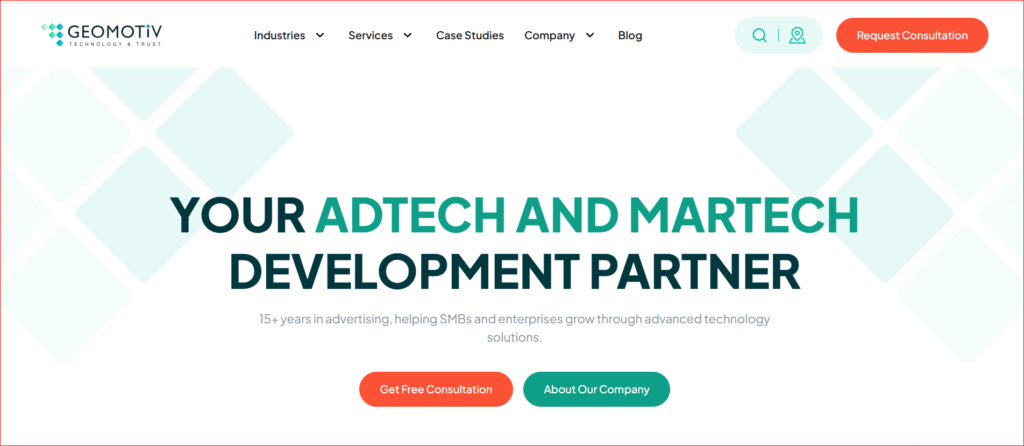
Geomotiv specializes in AI automation solutions for location-based businesses and supply chain management. Their platform combines machine learning with geospatial data analysis to automate logistics, route optimization, and resource allocation decisions.
Their expertise is particularly valuable for companies in transportation, delivery, field service, and retail sectors where location data plays a critical role in operational efficiency. Geomotiv’s platform integrates with major mapping and GPS services while also supporting custom location data sources, with clients typically seeing reductions in operational costs of 20-35% alongside improvements in customer satisfaction metrics.
8. Unico Connect
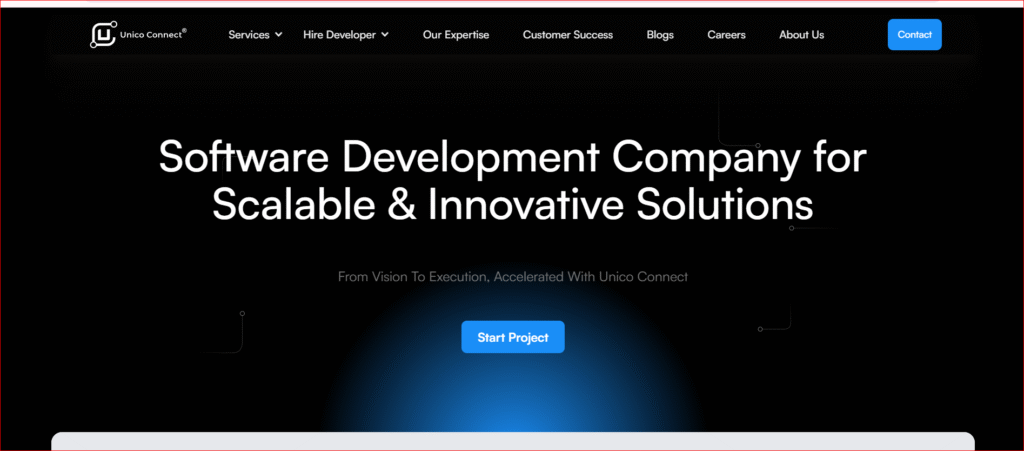
Unico Connect has built their reputation on AI-powered communication automation, particularly for businesses that manage high volumes of customer interactions across multiple channels. Their platform unifies email, chat, voice, and social media communications under a single AI-driven system.
Their natural language processing capabilities are particularly impressive, with AI systems that can understand context, sentiment, and intent across different communication channels. Unico Connect’s approach to AI training emphasizes industry-specific language models, training their systems on the specific terminology and communication patterns relevant to each client’s industry for more accurate automated responses.
9. Snotor
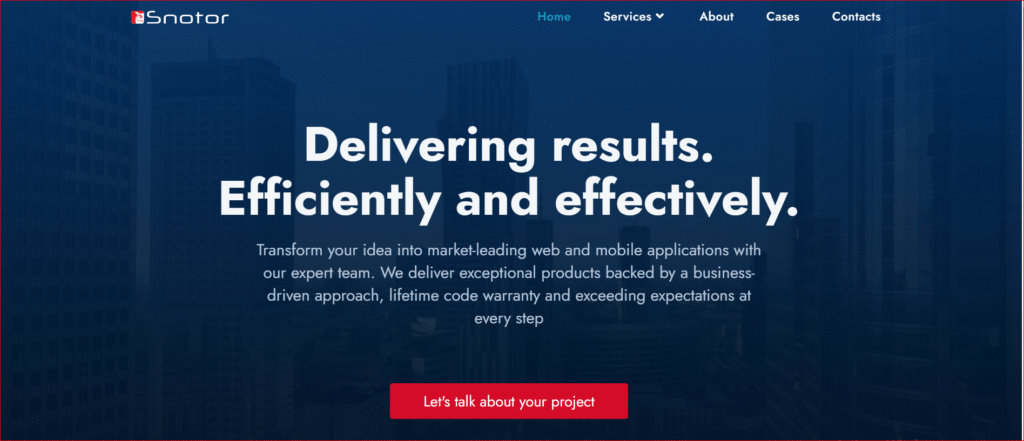
Snotor focuses on AI automation for document processing and data extraction, particularly valuable for businesses dealing with large volumes of unstructured data from contracts, invoices, forms, and other documents. Their optical character recognition (OCR) and document understanding capabilities far exceed traditional scanning solutions.
Their AI can extract relevant information from complex documents, categorize content, and route information to appropriate business systems without human intervention. Snotor’s machine learning models continuously improve their accuracy by learning from corrections and feedback, eventually achieving precision levels that match or exceed human performance while processing documents at superhuman speed.
10. Glorium Tech

Glorium Tech rounds out our list with their focus on AI automation for software development and IT operations. Their platform uses machine learning to automate code review, testing, deployment, and monitoring processes that traditionally require significant manual effort from development teams.
Their DevOps automation capabilities include intelligent build optimization, automated security scanning, and predictive system monitoring that can identify and resolve issues before they impact users. The company’s expertise extends to AI-powered project management and resource allocation for development teams, analyzing team productivity patterns and predicting project timelines to keep projects on track
Final Thoughts
The AI automation landscape in 2025 isn’t about choosing between human workers and robots – it’s about choosing between businesses that harness artificial intelligence to amplify their capabilities and those that get left behind trying to do everything the hard way.
Each company on this list brings something unique to the table, whether it’s specialized industry expertise, technical innovation, or implementation methodology. The key is finding the partner whose strengths align with your specific business needs and growth objectives.
The businesses winning with AI automation right now aren’t waiting for perfect solutions or complete certainty. They’re starting with high-impact, low-risk implementations and building from there. The question isn’t whether AI automation will transform your industry – it’s whether you’ll be leading that transformation or scrambling to catch up.
Ready to join the businesses already winning with AI automation? Start by identifying your highest-value, most repetitive processes and imagine what your team could accomplish if those tasks handled themselves. The future of your business might depend on the decision you make next.
❓ Frequently Asked Questions (FAQs)
1. What is AI automation for businesses, really?
AI automation uses machine learning, natural language processing, and data analysis to handle repetitive business tasks—like customer service, data entry, and even lead scoring—without constant human involvement. It helps businesses run smoother, faster, and with fewer errors.
2. How do I choose the right AI automation company?
It depends on what you’re trying to automate. Some companies are great with sales workflows, others with finance or operations. Look for ones that:
- Have experience in your industry
- Offer integration with your existing tech stack
- Provide customisation instead of a one-size-fits-all approach
- Can show you ROI from previous projects
3. Is AI automation only for big companies?
Not at all. Small businesses and startups are using AI automation for things like social media scheduling, chatbot responses, and CRM management. You don’t need an enterprise budget—you just need the right provider who understands your needs.
4. Will AI automation replace human jobs?
Not exactly. It’s more about replacing tasks, not people. Your team spends less time on mundane, repeatable stuff and more time on strategy, problem-solving, and work that needs a human brain.
5. How long does it take to implement AI automation?
Depends on the complexity. A basic chatbot or email automation might take a week. A full-blown integration into your supply chain or CRM could take a few months. The best firms will give you a clear roadmap upfront.
6. Are AI automation solutions secure?
Most reputable providers follow strict data privacy and cybersecurity protocols. Always ask about:
- GDPR compliance
- Encryption standards
- How they handle user data and third-party access
7. What are some use cases of AI automation in business?
Some common ones include:
- Lead qualification and CRM data updates
- Predictive analytics in marketing
- Automated invoicing and payroll processing
- Chatbots for 24/7 customer service
- Inventory forecasting for eCommerce
8. How much should I expect to spend on AI automation services?
Costs vary a lot—some tools are SaaS-based and start at under £100/month. Custom-built AI workflows from premium agencies could run into thousands per month. Make sure you’re paying for results, not just software.
9. What makes one AI automation company better than another?
Real experience, transparency, solid support, and a track record of helping businesses generate measurable gains. Fancy tech doesn’t mean much if there’s no ROI.
10. Can AI automation scale as my business grows?
Absolutely. The right providers will design systems that grow with you—whether it’s adding new triggers, expanding datasets, or plugging into new software tools.
Ready to join the businesses already winning with AI automation? Start by identifying your highest-value, most repetitive processes and imagine what your team could accomplish if those tasks handled themselves. The future of your business might depend on the decision you make next.




